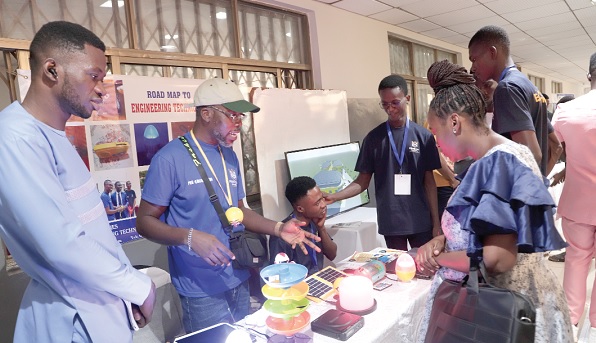
Pentecost University launches new engineering programmes
Pentecost University has launched five new unique engineering programmes to produce skilled professionals fit for the fourth industrial revolution era (Industry 4.0).
Advertisement
The fourth industrial revolution is driven by automation, machine learning, interconnectivity and real-time data.
The new programmes launched included Bachelor of Electricals and Electronics Engineering, Robotics and Automation Engineering, Manufacturing Engineering, System Engineering and Environmental Engineering.
Interested Senior Secondary School Certificate (SSCE) or Advanced Level (‘A’ Level) holders must have an aggregate score of 24 in three core subjects and three elective subjects while West Africa Senior School Certificate Examination (WASSCE) holders must have an aggregate score of 36 to be eligible.
An opportunity is also available for students who have attained an average mark of not less than 50 per cent in all courses to undergo a one-year Pre-Engineering programme.
The University is also offering short courses on engineering for businessmen to develop their skills.
New programmes
The event, dubbed “The big launch,” was organised in Accra last Thursday and featured an exhibition of some innovations developed by some students, such as a smart home control system and a highway alert system.
Pre-engineering
The Vice-Chancellor of Pentecost University, Apostle Prof. Kwabena Agyapong-Kodua, said the school was working to establish a Pentecost University Village to develop the skills of people from all levels and sectors.
He stressed that the Pre-engineering programme was open to all to undergo preparatory training for a year before enrolling in the main engineering Programme.
“The Bachelor of Engineering Programme is three years in-house and one year in the industry.
“Businessmen who cannot go through the four-year programmes can go through our short executive certificates programmes,” added.
He said the short courses included Smart Manufacturing, Internet of Things and Robotics and Automation.
The Vice-Chancellor added that the PhD engineering programme, which was awaiting accreditation, was problem-centred, where students would find an engineering solution to a problem.
Training
Prof. Agyapong-Kodua advised industries to bring their staff for training to benefit from their one-of-a-kind engineering education for all.
“I am confident that these new engineering programmes will contribute to the advancement of knowledge and skills in the relevant fields of engineering,” he said.
He said the university will continue to provide academic training and practical, spiritual, moral and ethical foundations for students.
“For the lifelong success of businesses, nations, organisations and economies, integrity and skills are required,” he stated.
Commendation
A Deputy Minister of Education, Rev. John Ntim Fordjour, commended the university for aligning itself to train graduates for the industry and providing critical skills and smart engineering education.
He said it was critical to raising a population with such skills, adding that the Ministry of Education was realigning every aspect of the education system to respond to the needs of the world.




